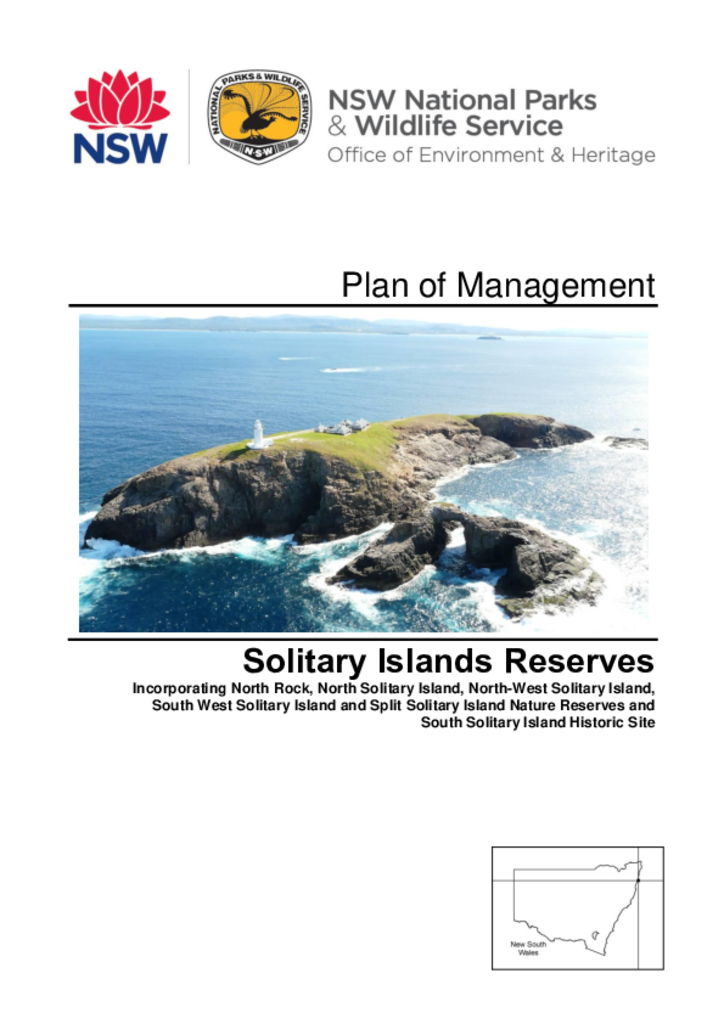Solitary Islands Reserves Plan of Management
Incorporating North Rock, North Solitary Island, North-West Solitary Island, South West Solitary Island and Split Solitary Island Nature Reserves and South Solitary Island Historic Site
These reserves provide important nesting habitats for several species of migratory and threatened seabirds and shorebirds, including the wedge-tailed shearwater (or muttonbird). Apart from the uses associated with South Solitary Island lighthouse, the islands have been subject to very little human disturbance. The reserves form a continuum of natural habitats with the underlying reef system of the surrounding Solitary Islands Marine Park.
The South Solitary Island lighthouse, completed in 1880, is one of a series of navigational aids along the NSW coast. The lighthouse tower is one of only 2 relatively intact, major lighthouses in New South Wales located on an offshore island. A new site-specific conservation management and cultural tourism plan, to be prepared for the South Solitary lighthouse complex, will provide guidance on appropriate cultural tourism use and options for on- and off-site conservation and interpretation of heritage items.
The South Solitary lighthouse and the Solitary Islands have an ongoing cultural significance to the local community and are considered part of the contemporary identity of the Coffs Harbour community. The islands have mythical landscape values to the people of the Gumbaynggirr and Yaegl Aboriginal Nations.
The NSW National Parks and Wildlife Act 1974 requires that a plan of management be prepared for each nature reserve and historic site. A draft plan of management for the Solitary Islands reserves was placed on public exhibition between 23 November 2012 and 25 February 2013. The 6 submissions received on the draft plan were carefully considered before adopting this plan.
This plan contains a number of actions to protect our natural environment, including protection of threatened species and communities, and to control pest plants and animals. It also seeks to foster partnerships with Aboriginal people through consultation, especially in relation to management and interpretation of Aboriginal cultural values.
